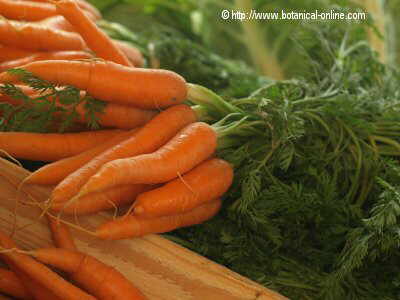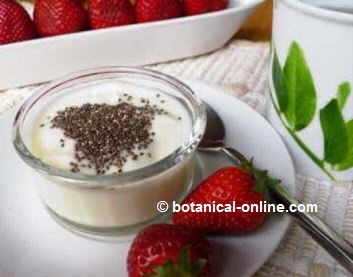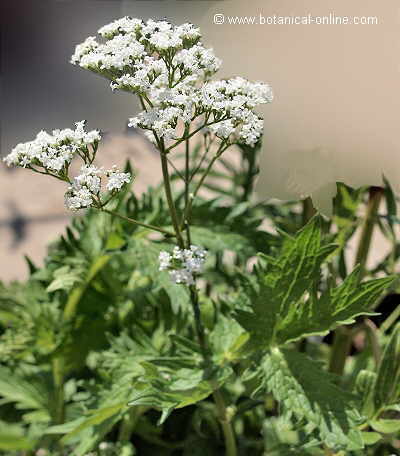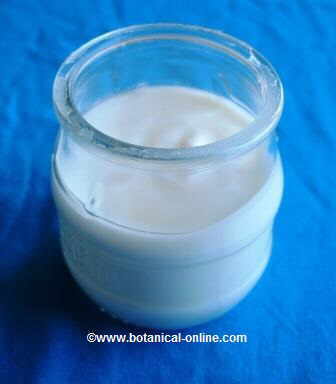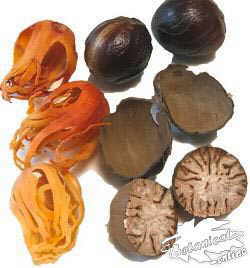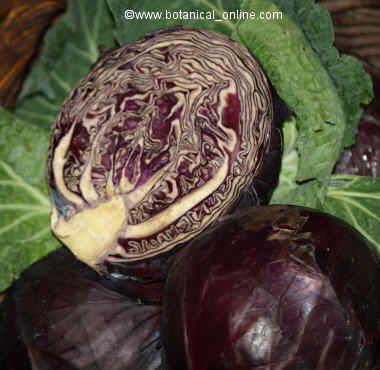Contents
- 1 What to eat to prevent or treat indigestion
- 1.1 FOOD THAT CAN EASILY BE DIGESTED
- 1.2 How to eat properly for stomach health
- 1.3 Not too acidic or too feculent food are the best
- 1.4 Suitable food for indigestion
- 1.5 A suitable recipe for indigestion
- 1.6 NON SUITABLE FOOD FOR INDIGESTION
- 1.7 What food should we avoid in case of digestion problems?
- 1.8 Spicy food to prevent indigestion?
- 1.9 Is milk good for indigestion?
What to eat to prevent or treat indigestion
FOOD THAT CAN EASILY BE DIGESTED
How to eat properly for stomach health
A proper diet can help digestion. This diet should not only contain adequate food and avoid those that may harm us, but must take into account a range of eating habits and the frequency of meals, eating conditions, etc.

Eating bad fat foods can lead to indigestion problems
Not too acidic or too feculent food are the best
The acidity of the stomach is a major disorder that causes stomach pain, while many of the problems about cramps and spasms are caused by excessive flatulence in the stomach or intestine. Flatulence pressures abdominal muscle and produces pain.
Natural plant foods are particularly interesting for their ability to provide fluids and fiber. But it’s worth mentioning specially foods with rich demulcent properties.
We call demulcent all the components that protect the skin or the internal mucous . Among all of them the most interesting ones are pectin, mucilages and starch.
Suitable food for indigestion
- High pectin foods: Pectin is a type of soluble fiber with antigastritic, softening and repairing properties which are very recommended for the intestinal mucous.
Among the foods that contain pectin we have the following: Apples, bananas, carrots
Steamed, boiled or raw carrots are one of the best foods for the stomach
- High mucilage foods : Mucilages have the ability to protect internal mucous membranes, so their use is appropriate for the treatment of irritation of the digestive system.
Among the many foods that contain mucilages we can mention: Okra, borage, flaxseed, chia seeds, sesame seeds, cochayuyo, and figs.
Chia seeds are rich in mucilage. Add them to a yogurt or take it with a glass of water
- High starch food: starch, mixed with water, has demulcent properties. Among the foods rich in starch the most interesting ones are: Rice (Rice water or boiled rice is best), oats, wheat. (Bread is very suitable to reduce acidity and soothe the stomach), Potatoes
- Bitter food for indigestion: Indigestion is sometimes caused by lack of gastric juices or bile, which determines a lengthening of the digestive process that results in the form of bloating, pain, flatulence, etc. Eating a variety of plants containing bitter principles helps facilitate digestion. (More information on bitter taste)
A suitable recipe for indigestion
Pears cooked in cinnamon are an excellent recipe, soft and nutritious, especially for those people who are down, sick, with digestive problems or constipation.
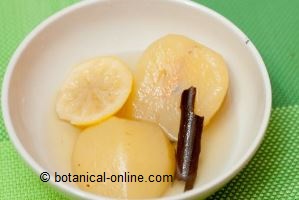
Chia seeds are rich in mucilage. Add them to a yogurt or take it with a glass of water
NON SUITABLE FOOD FOR INDIGESTION
What food should we avoid in case of digestion problems?
- High-fat foods: Foods that contain lots of fat, especially animal fat foods are not suitable for delicate stomachs.
- High sugar foods: pasta, candy or sweets in general can worsen stomach pain.
- Drinks with caffeine: Caffeine prevents the stomach muscles to relax. Foods containing caffeine such as colas, coffee, tea, etc. should be avoided.
- Gas beverages: Except in lazy stomachs in which a little gas could be appropriate, gas beverages increase stomach acid and swelling.
Spicy food to prevent indigestion?
Some specialists argue that pungent spices produce overstimulation of the stomach and they should generally not to be taken by those who have stomachs too active with a tendency to produce acidity.
Other specialists believe that spicy food can help to improve stomach problems or it is even suitable for the treatment of ulcer.
Both agree that hot spices are helpful for people who have “lazy stomachs “ and show some trouble digesting food, which may also be responsible for problems of stomach pain, flatulence or constipation.
Some non pungent spices such as cinnamon or coriander, are used to facilitate digestion, remove the acidity and expelling gases.
Is milk good for indigestion?
Milk is not well tolerated by many adults because they lack the proper enzyme to digest it.
People who can not tolerate milk should refrain from taking it.
It is better to replace whole milk for products that are well tolerated such as skimmed or predigested products (yogurt, kefir, curd, etc.)
Are oranges, lemons or other citrus fruits good for indigestion?
People whom citrus (oranges, lemons, tangerines, grapefruit, etc.) will produce heartburn should avoid or reduce their intake.
However, these foods are highly recommended for most people because they facilitate digestion and prevent the feeling of heaviness in the stomach
![]() More information on indigestion.
More information on indigestion.

